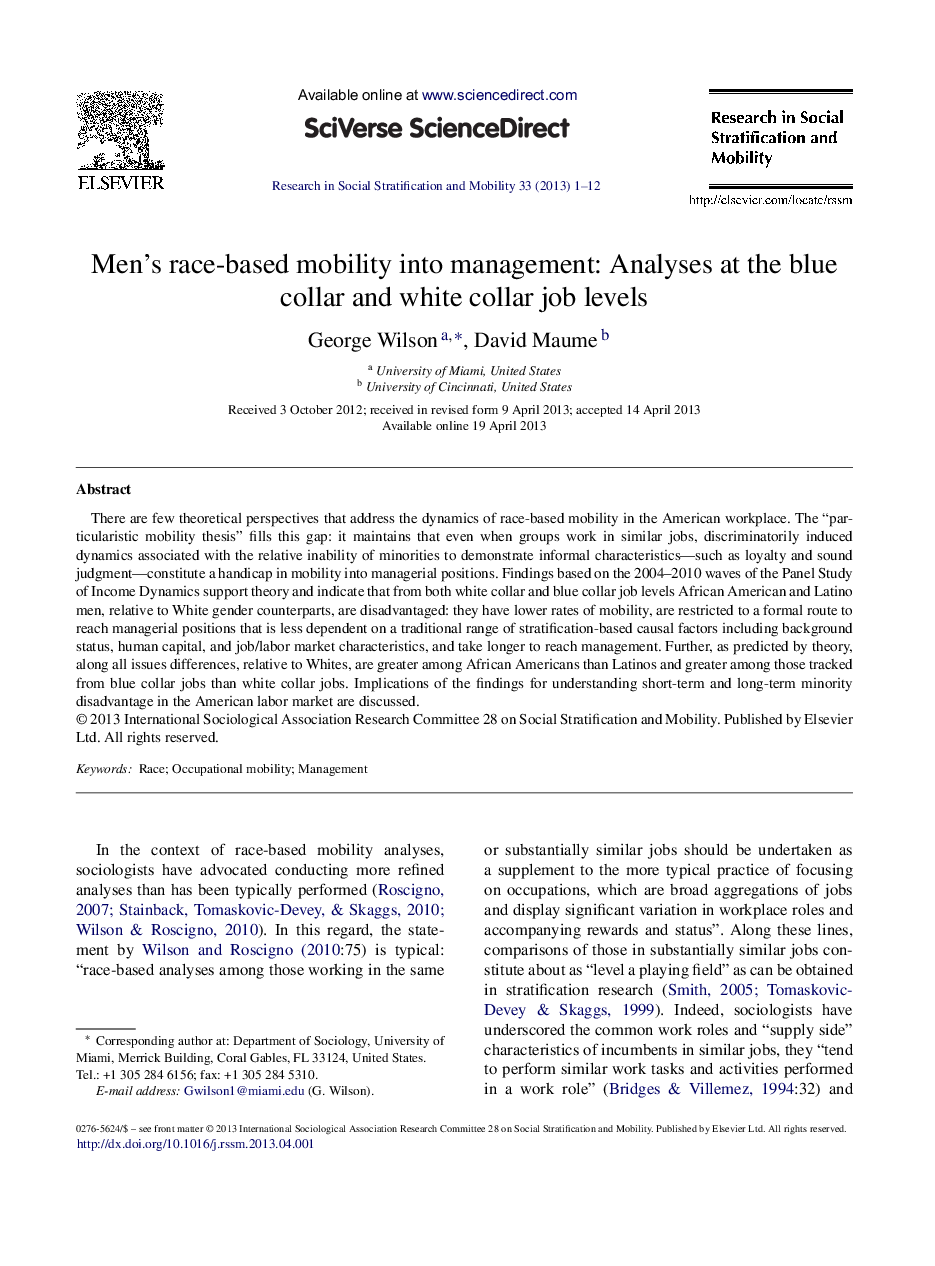| Article ID | Journal | Published Year | Pages | File Type |
|---|---|---|---|---|
| 998643 | Research in Social Stratification and Mobility | 2013 | 12 Pages |
There are few theoretical perspectives that address the dynamics of race-based mobility in the American workplace. The “particularistic mobility thesis” fills this gap: it maintains that even when groups work in similar jobs, discriminatorily induced dynamics associated with the relative inability of minorities to demonstrate informal characteristics—such as loyalty and sound judgment—constitute a handicap in mobility into managerial positions. Findings based on the 2004–2010 waves of the Panel Study of Income Dynamics support theory and indicate that from both white collar and blue collar job levels African American and Latino men, relative to White gender counterparts, are disadvantaged: they have lower rates of mobility, are restricted to a formal route to reach managerial positions that is less dependent on a traditional range of stratification-based causal factors including background status, human capital, and job/labor market characteristics, and take longer to reach management. Further, as predicted by theory, along all issues differences, relative to Whites, are greater among African Americans than Latinos and greater among those tracked from blue collar jobs than white collar jobs. Implications of the findings for understanding short-term and long-term minority disadvantage in the American labor market are discussed.
